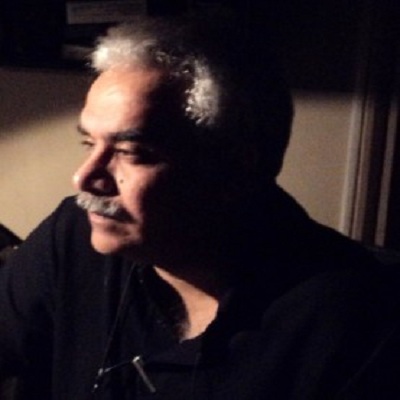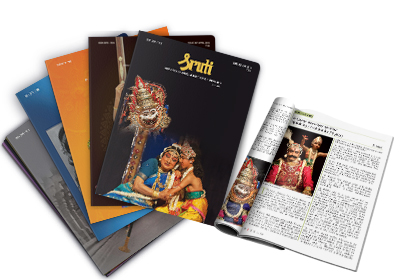
An interview with Theatre Director Vinay Sharma who takes Padatik’s new production “Atmakatha” to Prithvi Theatre, Mumbai this month.
Tell us a little about Padatik’s history?
Padatik was founded in the early 1970’s by Shyamanand Jalan when he left Anamika where he had worked with Pratibha Agarwal and other stalwarts since the 1950’s. He was by then one of the foremost director/actors in Hindi theatre, being awarded the Sangeet Natak Akademi Award for his production of Badal Sircar’s Evam Indrajit.
Chetna Jalan and Kulbhushan Kharbanda were co-founders. At Padatik, Shyamanand created an unfettered space for theatre workers. I joined only in 1981 and as I discovered there was a passionate commitment to independence of spirit and exploration.
It was in the 1980’s that Padatik organized Lokotsav as well as The International Festival and Seminar on Theatre, Dance and Martial Arts in Calcutta. These were seminal events that opened the doors for a number of theatre and dance practitioners to explore the interdisciplinary and cross-cultural avenues that have since defined their creative work in the country.
Padatik’s policy of inviting guest directors and designers from both within and outside the country for productions as well as workshops exposed its actors to varied influences.
As many as twenty two directors have created more than 70 plays produced by Padatik over the years, which I think is a remarkable record for an independent non-governmental performing arts institution
You are a director, writer and actor. What defined your own work in the theatre?
Restlessness, I suppose. A need to challenge the status-quo. Without thinking of results.
In the initial years I was just an actor. Then in 1987 I joined “Happy Hours” – a co-curricular programme for children. It was there that I began co-writing and co-directing plays which were developed over the course of a year’s work with children. We workshopped or rather “play-shopped” with the children over a different theme every year. Themes like Space, Mind, Evolution, Perception, Language etc. We tried to discover and explain these themes to ourselves and to the young ones. This work continued till 2003 and we developed and produced seventeen scripts in that period. It was a mind-expanding experience and perhaps the only one of its kind at the time.
It was only in 1991 that I started directing at Padatik. At first it was only adaptations of scripts by foreign playwrights who I had found exciting- Dario Fo, Beckett, Frisch. It was only later that I was drawn to Indian writing- Govind Deshpande, Makarand Sathe and then a deconstructive interpretation of Nirmal Verma’s Weekend.
In between all this there was what I called a ‘performative interrogation’ within an installation by the artist Chittrovanu Mazumdar. My improvisational reactions to his work led to the performance “An Actor and a Work in Space”
Your work has often been referred to as experimental, would you agree with that?
I don’t like any kind of labeling. The simplest definition of drama that I have ever come across is that it is “the imaginative communication of significant experience” – I like that, that is what any theatre work is. As for experimentation, everything is an experiment, even repeating the formulaic is a risk, there are no guarantees of success ever.
When I wrote and performed “ho sakta hai do aadmi do kursiyaan” a few years ago it was in an effort to resist this very kind of labeling. And it worked across all kinds of audiences.
When you cut through the layers of theoretical verbiage what you’re finally left with is the vulnerability of the performer on stage, trying his best to hold an audience for an hour or two. The experience may be good or bad, sacred or profane but can never be meaningless if the giver and the receiver are both honest in their effort to communicate and understand in a shared space where no categorization is necessary.
What is Atmakatha about?
Atmakatha was written in the late 1980’s by Mahesh Elkunchwar. It is about an ageing writer who faces up to his past while dictating his memoirs. The play deals with idealism, compromise, relationships, betrayal, the dubiousness of memories. It is, in the end, a love story gone horribly wrong.
What was it like working on the play?
Invigorating. As it is when one works with intense actors who submit unreservedly to the process of discovering the text. Kulbhushan Kharbanda is unassuming, extremely subtle and a complete director’s actor. Chetna Jalan, Sanchayita Bhattacharjee and Anubha Fatehpuria are arguably amongst the finest actresses on stage today.
Tell us something about the design of the play
You could say it is impressionistic. It plays with concepts of time, light and colour to create images of the subterranean world which lives and breathes underneath all memories.
Do you think theatre will survive the changing times?
Yes
Why?
Because we like hearing stories face to face, because that takes us back to our earliest, most innocent times and that will never change.
© Mytheatrecafe


